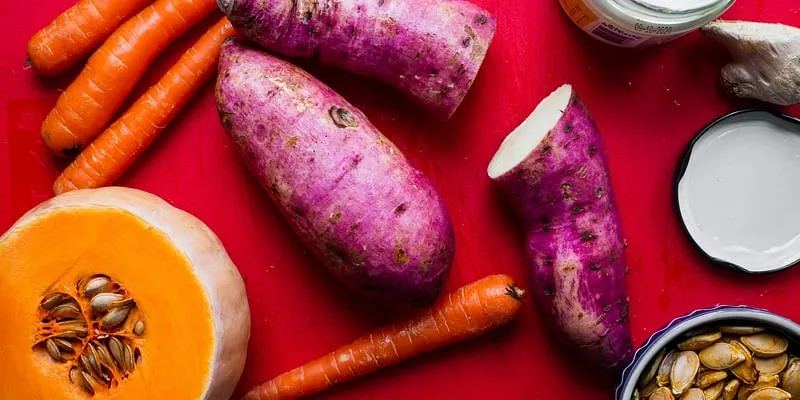Monsoon is almost here! Find out if shifting seasons can impact your health
The cusp of seasonal changes is a critical phase for almost every person. This monsoon, avoid stressing your immune system with foods that affect your digestion and keep foods warm and consume them as soups and cooked foods.
Monsoons have the potential to bring colds, cough, and flu. Ask any doctor and you will find that people easily get sick when monsoons start. The cusp of seasonal changes is a critical phase for almost every person, irrespective of age, sex, body type or anything else for that matter.
Ayurveda has always spoken about this seasonal shift as the time that all disease begins. The monsoons are considered a cold season.
Warm versus cool foods
Someone asked me the other day about cool foods and warm foods, and whether we need to avoid heating foods. I’m sure that you might have also thought about this. The truth is that no food is absolutely harmful or helpful. It depends on the body constitution, season, and time of the day.
Since the monsoons are a cold season, they tend to increase cold in the body, all the more in bodies that are naturally cold. Traditional Chinese medicine also speaks about cold weather being stressful to the kidneys and the adrenal glands. The cold weather also brings with it the tendency to feel more anxiety and depression, and this can be correlated with lowering levels of Vitamin D.
Make sure that your first step towards supporting your health during the monsoon is to check vitamin D levels and make sure that it is optimal.

Image source: Unsplash
Do eating patterns shift with seasons?
You might have someone telling you that the only way to eat correctly is to eat every two hours or to eat only two meals a day in a small window. Again, there is no absolute right or wrong way, and this too depends on your body type and season. However, there are some overall aspects to consider during the monsoons.
1. Digestion does weaken during the monsoons, which is why gastrointestinal infections are much more. One of the best ways to lighten the load on digestion is to eat smaller and more frequent meals rather than overeating. Stressing your digestive system with a heavy meal may not be effective. That said, if you find that fasting and eating two meals works for you, then do stay with that approach.
2. Increase overall warmth in the body with foods that help improve or fire up digestion. If you do not have blood sugar challenges that show up as fluctuations in energy, mood, and sleep, then add a little honey after your lunch. This is also a great time for adding spices to all foods to help support digestion.
3. It is best to avoid eating leftover foods. Even though the traditional thought process to this was that food spoils easily with increased moisture and that might not be the case when we have refrigerators, leftovers can contribute to disease. If you are susceptible to colds and flu during the monsoons, it is best to prepare and consume your food very fresh.
4. Since the monsoon season is very sensitive to adrenal function, foods that provide natural salts are very supportive. By salts, I do not mean oily pickles. Include salty foods like celery, black salt, chaat masala, and jal jeera, as part of vegetable juices and even sprinkled into foods to support electrolyte balance.
Meals to include during monsoons to prevent infections
1. Include spices that support warmth in the body and support digestion as chutneys. When we talk about superfoods all over the world, let us never forget chutneys which are India’s rich tradition of superfoods!
Include ginger, mint, cumin, coriander, tamarind, turmeric, and saffron as part of your chutneys in combination with soaked, spouted, ground, and fermented lentil dosas or idlis.

Image source: Unsplash
2. Rather than cold foods, including vegetables such as carrots, green beans, pumpkin, sweet potatoes, and different squash which have natural sweetness to them. Prepare them in your local ways with seasoning and desiccated coconut to pacify the chillness that occurs within the body. They will not impact blood sugar when you combine them with protein and fats.
3. Try to avoid eating the same grain every day. That can be regressive on the body and increase systemic inflammation.
Vary brown rice, oats, amaranth, millet, and quinoa so that your body does not show allergic reactions to any one of them.
4. Lentils can be tricky in the monsoons as you may find the sudden drop in digestive strength makes you react more in terms of increased bloating or pain. Keep lentils lighter by including mung dal, green gram and masoor, rather than dark rajma or dark chana. You will also notice a substantial difference between consuming these cooked in the pressure cooker versus ground and made into dosas, if you are sensitive to them.

Image source: Unsplash
How to stay safe this monsoon?
Avoid stressing your immune system with foods that affect your digestion. Keep foods warm and consume them as soups and cooked foods versus raw cold smoothies. Remember that adrenal function which is delicate in the winter is also impacted by stress.
Find your way of destressing whether it is dancing away to music you love, sitting with regular meditation, or walking every day to release that stress. All it takes is mindfulness and some gentle changes in seasonal shifts to help your body cope with those changes.
Edited by Megha Reddy
(Disclaimer: The views and opinions expressed in this article are those of the author and do not necessarily reflect the views of YourStory.)









